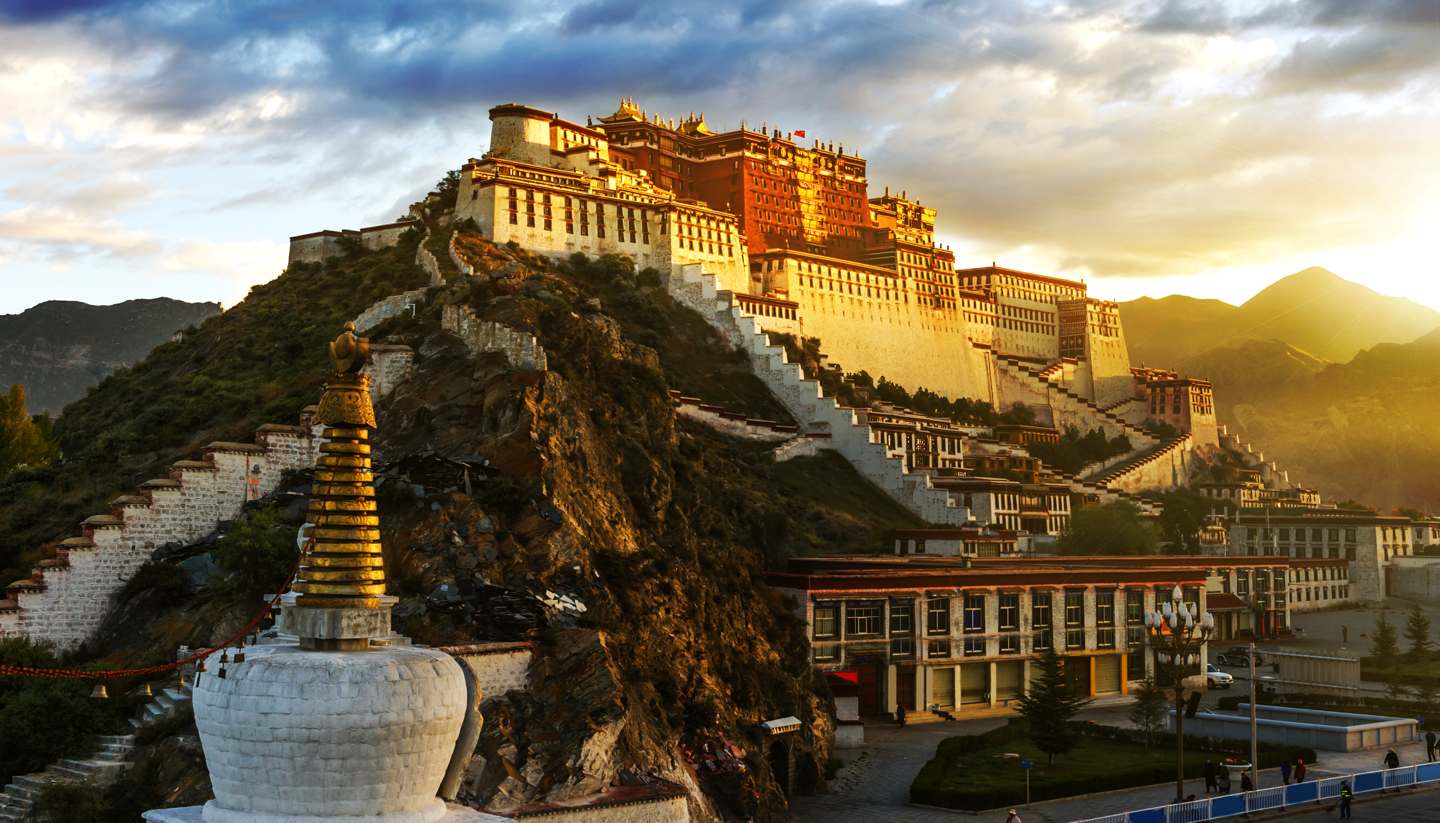Tibet Food and Drink
Tibet’s harsh mountain environment has led to a fairly simple cuisine. The staple foods for most Tibetans are dumplings and noodles, with a big meal out extending to fried yak dishes. Chinese restaurants are omnipresent and mostly offer spicy Szechuanese dishes or pork-free Muslim food from Gansu province. Backpacker-friendly restaurants in the main towns offer variants of western cuisine, from yakburgers to yak cheesecake.
Specialities
Momos: Dumplings, steamed or sometimes fried, and filled with pockets of ground vegetables or yak meat. The classic Himalayan dish.
Thukba: Thick noodle soup, one of several variants on noodle stew – depending on the shape of the noodles you may also find ‘thanthuk’and ‘hipthuk’.
Bö cha: Yak butter tea, the quintessential Tibetan drink. Tea leaves, boiling water, yak butter, salt and soda are churned up in a long tube to create a greasy, soupy consistency.
Shrabtra: Stir fired meat with celery, carrots and green chilli.
Gyurma: Sausage of yak or sheep’s bood and roasted barley flour or rice.
SokhamBexe: Fried dough with butter and minced meat – said to be a favourite of the Dalai Lama.
Tsampa: Ground roasted barley is a staple in rural or nomad areas, often mixed with butter tea to make a filling gruel. Add sugar and milk or yoghurt for breakfast.
ShaPhaley: Bread stuffed with seasoned beef and cabbage.
Balepkorkun: Flatbread cooked on a skillet.
Lunggoikatsa: Stewed sheep’s head with curry and fennel.
Gundain: Pastry made with barley grain and yeast, roasted flour, dry curd cheese, wild ginseng and brown sugar.
Tipping
It’s generally not expected but 10% is appreciated in tourist restaurants.
Drinking age
There is no minimum drinking age in China, but you must be 18 to buy it.


